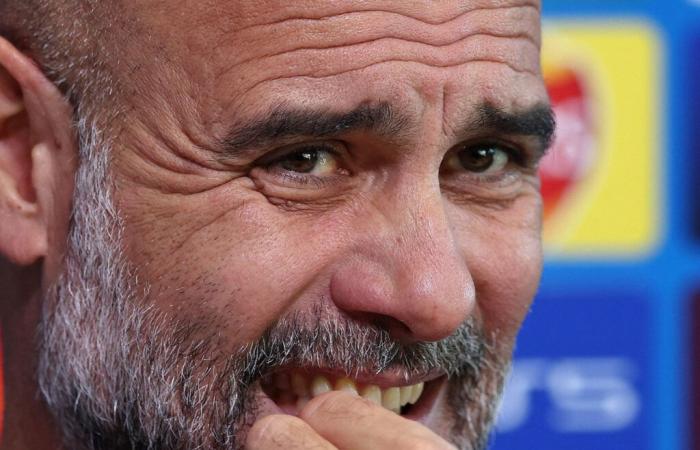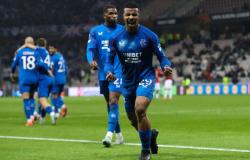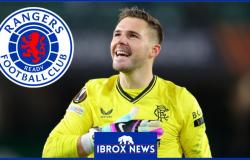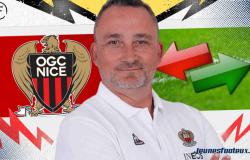After Manchester City’s draw against Feyenoord (3-3) on Tuesday November 26 during the fifth day of the Champions League, Pep Guardiola appeared with scratches on the head and nose in the post-match conference. The Cityzen technician admitted that he wanted to “hurt himself”. The next day, he apologized in a statement posted on his social networks, explaining that his response “was in no way intended to minimize the very serious problem of self-harm.”
With five defeats in a row and this draw after leading 3-0, Pep Guardiola is under pressure, a rare situation since his arrival on the Manchester City bench in 2016. For Meriem Salmi, interviewed by RMC, it is the “reflection” of mental distress and not with a simple stroke of blood.
“Coaches have to manage their own stress, regulate their own emotions. But also those of their players, their environment and all the management. So that’s a lot, because it’s not just their own stress. There is also the pace of the competitions which is enormous, the intensity of the training and their quality. So the cognitive engagement is not the same,” she explains.
Overworked coaches
Pep Guardiola isn’t the only manager experiencing issues with his mental health. Last January, Jürgen Klopp announced he was leaving Liverpool due to mental fatigue. “I’m leaving because I’m, how can I put it, out of energy,” he explained in a long interview for the club’s website.
More recently, it was the coach of OGN Nice, Franck Haise who sounded the alert. Sunday November 24, he went to the emergency room because of severe migraines after the Ligue 1 match between Nice-Strasbourg. The tests he took revealed high blood pressure. “All coaches hate defeat, afterward, we each experience it in our own way, we internalize, we externalize. But it is certain that it is a profession of passion, and like all professions of passion, it is sometimes difficult to evacuate. Sometimes it can hurt your head,” he explained at a press conference on November 27, on the eve of Nice’s match against Rangers in the Europa League.
In an interview given to The Team earlier in the month, he had already mentioned overwork of coaches. Then coach and manager of RC Lens, he considered taking a break last winter. “Between December and the beginning of January, I knew I had to make a decision. Because I arrived on vacation really tired. During a hike, or even a walk, I seriously damaged my quad by slipping “Pretty much, it was the operation on something so trivial… On a slide, you don’t do something like that to yourself,” he says.
Seeing that he was no longer able to practice activities that allowed him to unwind, such as yoga or walks in nature, he decided to give up his position as manager and devote himself solely to that of coach. “It saved me 20% of time and mental load,” he says.
For several months now, with the increase in competitions and matches, the question of the mental health of footballers has also been questioned. FIFPro, the global players’ union, even commissioned a study on the subject. The report, published on November 20, indicates in particular that “the professional football sector is failing in its duty to apply the required safety standards and, therefore, violates existing legal frameworks at European and global levels.”
Read more






